Caomingzhe Si
Fed-NILM: A Federated Learning-based Non-Intrusive Load Monitoring Method for Privacy-Protection
May 24, 2021
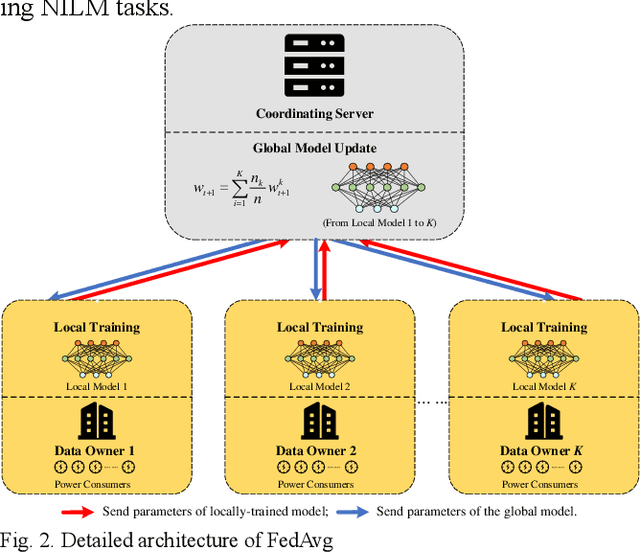
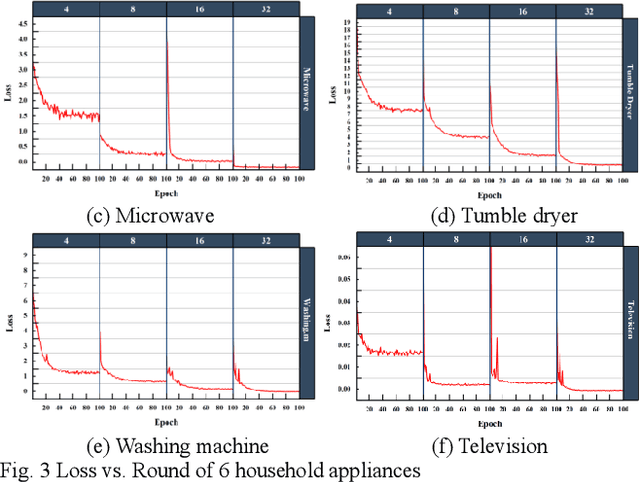
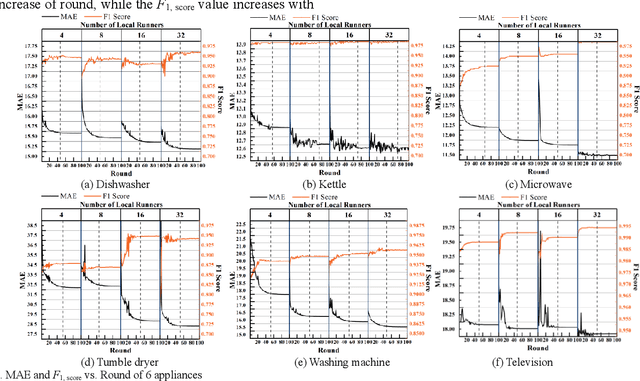
Abstract:Non-intrusive load monitoring (NILM) decomposes the total load reading into appliance-level load signals. Many deep learning-based methods have been developed to accomplish NILM, and the training of deep neural networks (DNN) requires massive load data containing different types of appliances. For local data owners with inadequate load data but expect to accomplish a promising model performance, the conduction of effective NILM co-modelling is increasingly significant. While during the cooperation of local data owners, data exchange and centralized data storage may increase the risk of power consumer privacy breaches. To eliminate the potential risks, a novel NILM method named Fed-NILM ap-plying Federated Learning (FL) is proposed in this paper. In Fed-NILM, local parameters instead of load data are shared among local data owners. The global model is obtained by weighted averaging the parameters. In the experiments, Fed-NILM is validated on two real-world datasets. Besides, a comparison of Fed-NILM with locally-trained NILMs and the centrally-trained one is conducted in both residential and industrial scenarios. The experimental results show that Fed-NILM outperforms locally-trained NILMs and approximate the centrally-trained NILM which is trained on the entire load dataset without privacy preservation.
A Federated Learning Framework for Non-Intrusive Load Monitoring
Apr 04, 2021
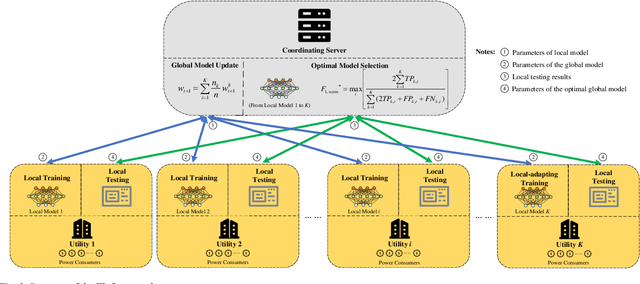
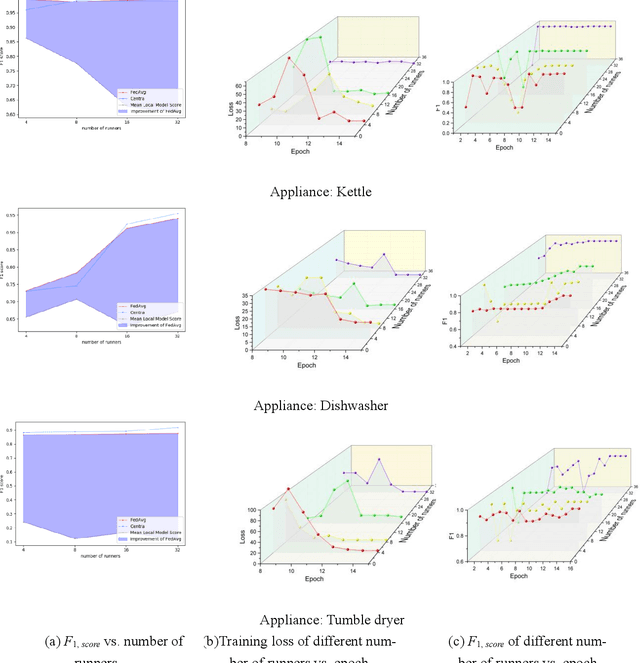
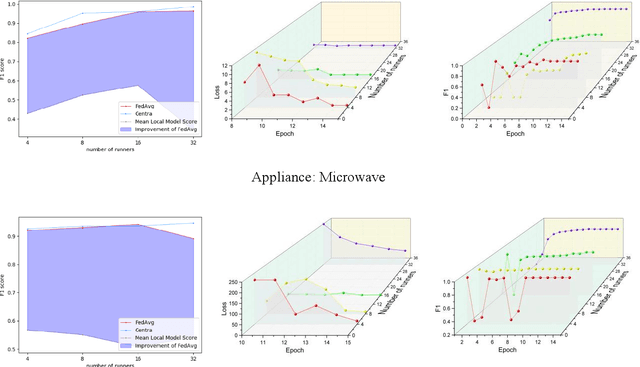
Abstract:Non-intrusive load monitoring (NILM) aims at decomposing the total reading of the household power consumption into appliance-wise ones, which is beneficial for consumer behavior analysis as well as energy conservation. NILM based on deep learning has been a focus of research. To train a better neural network, it is necessary for the network to be fed with massive data containing various appliances and reflecting consumer behavior habits. Therefore, data cooperation among utilities and DNOs (distributed network operators) who own the NILM data has been increasingly significant. During the cooperation, however, risks of consumer privacy leakage and losses of data control rights arise. To deal with the problems above, a framework to improve the performance of NILM with federated learning (FL) has been set up. In the framework, model weights instead of the local data are shared among utilities. The global model is generated by weighted averaging the locally-trained model weights to gather the locally-trained model information. Optimal model selection help choose the model which adapts to the data from different domains best. Experiments show that this proposal improves the performance of local NILM runners. The performance of this framework is close to that of the centrally-trained model obtained by the convergent data without privacy protection.
 Add to Chrome
Add to Chrome Add to Firefox
Add to Firefox Add to Edge
Add to Edge